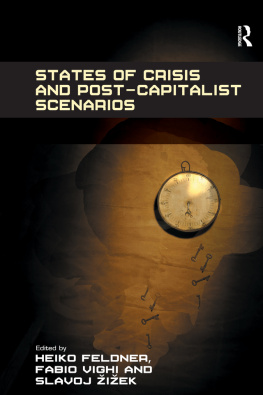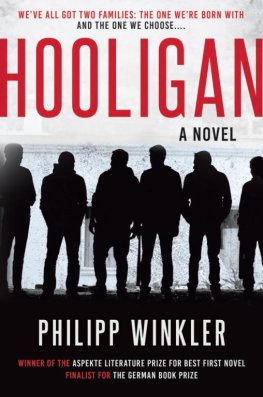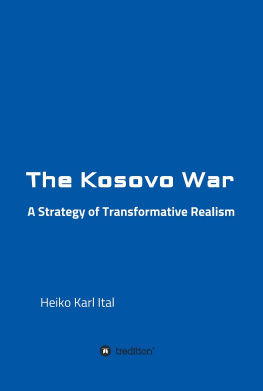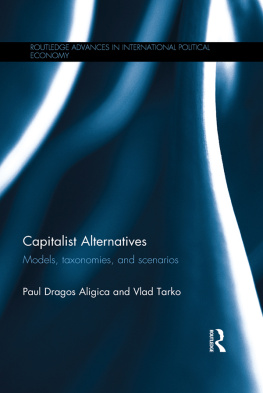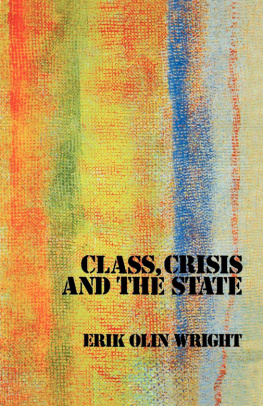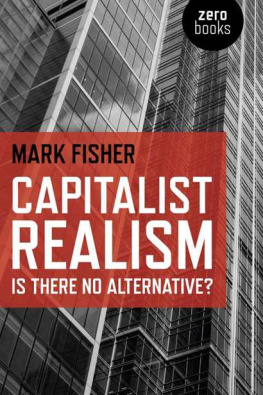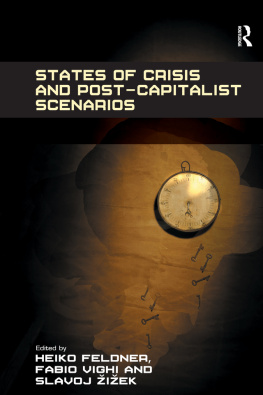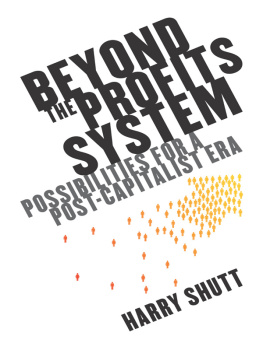Feldner Heiko - States of Crisis and Post-Capitalist Scenarios
Here you can read online Feldner Heiko - States of Crisis and Post-Capitalist Scenarios full text of the book (entire story) in english for free. Download pdf and epub, get meaning, cover and reviews about this ebook. publisher: Taylor and Francis, genre: Politics. Description of the work, (preface) as well as reviews are available. Best literature library LitArk.com created for fans of good reading and offers a wide selection of genres:
Romance novel
Science fiction
Adventure
Detective
Science
History
Home and family
Prose
Art
Politics
Computer
Non-fiction
Religion
Business
Children
Humor
Choose a favorite category and find really read worthwhile books. Enjoy immersion in the world of imagination, feel the emotions of the characters or learn something new for yourself, make an fascinating discovery.
- Book:States of Crisis and Post-Capitalist Scenarios
- Author:
- Publisher:Taylor and Francis
- Genre:
- Rating:3 / 5
- Favourites:Add to favourites
- Your mark:
- 60
- 1
- 2
- 3
- 4
- 5
States of Crisis and Post-Capitalist Scenarios: summary, description and annotation
We offer to read an annotation, description, summary or preface (depends on what the author of the book "States of Crisis and Post-Capitalist Scenarios" wrote himself). If you haven't found the necessary information about the book — write in the comments, we will try to find it.
States of Crisis and Post-Capitalist Scenarios — read online for free the complete book (whole text) full work
Below is the text of the book, divided by pages. System saving the place of the last page read, allows you to conveniently read the book "States of Crisis and Post-Capitalist Scenarios" online for free, without having to search again every time where you left off. Put a bookmark, and you can go to the page where you finished reading at any time.
Font size:
Interval:
Bookmark:

STATES OF CRISIS AND POST-CAPITALIST SCENARIOS
Heiko Feldner
Cardiff University, UK
Fabio Vighi
Cardiff University, UK
AND
Slavoj iek
University of Ljubljana, Slovenia

First published 2014 by Ashgate Publishing
Published 2016 by Routledge
2 Park Square, Milton Park, Abingdon, Oxon OX14 4RN
711 Third Avenue, New York, NY 10017, USA
Routledge is an imprint of the Taylor & Francis Group, an informa business
Copyright 2014 Heiko Feldner, Fabio Vighi and Slavoj iek
Heiko Feldner, Fabio Vighi and Slavoj iek have asserted their right under the Copyright, Designs and Patents Act, 1988, to be identified as the editors of this work.
All rights reserved. No part of this book may be reprinted or reproduced or utilised in any form or by any electronic, mechanical, or other means, now known or hereafter invented, including photocopying and recording, or in any information storage or retrieval system, without permission in writing from the publishers.
Notice:
Product or corporate names may be trademarks or registered trademarks, and are used only for identification and explanation without intent to infringe.
British Library Cataloguing in Publication Data
A catalogue record for this book is available from the British Library
The Library of Congress has cataloged the printed edition as follows:
Feldner, Heiko.
States of crisis and post-capitalist scenarios / by Heiko Feldner, Fabio Vighi, and Slavoj
iek
pages cm
Includes bibliographical references and index.
ISBN 978-1-4094-6189-0 (hardback) 1. Financial crises. 2. Capitalism. I. Vighi, Fabio,
1969- II.
iek, Slavoj. III. Title.
HB3722.F452 2014
330.12'2dc23
2013034175
ISBN 9781409461890 (hbk)
- Introduction
Heiko Feldner, Fabio Vighi and Slavoj iek - 1 The Matrix Cannot Be Reloaded: A Lacano-Marxian Perspective on the Current Economic Crisis
Heiko Feldner and Fabio Vighi - 2 Still Dancing: Drive as a Category of Political Economy
Jodi Dean - 3 The Untranscendable Horizon of Our Time: Capitalist Crisis and the Ends of Utopia
Benjamin Noys - 4 The Media Crisis in Capitalism: A Report on the Evil of Banality
Paul Taylor
- 1 The Matrix Cannot Be Reloaded: A Lacano-Marxian Perspective on the Current Economic Crisis
- 5 The Undoing of an Event
Slavoj iek - 6 Theory Without Conscience: Hegel's Absolute Refusal of Practice
Todd McGowan - 7 Affective Economies: Lacan's Four Discourses against the Historicism of Capitalist Abstraction
Yahya M. Madra and Ceren zseluk - 8 Ocean Doesn't Live Here Anymore: Steven Soderbergh's Contagion and the Stock Market Crash
Marco Grosoli
- 5 The Undoing of an Event
- 9 Getting Its Act Together: What Chance Subtraction Under Conditions of Scarcity?
Colin Cremin - 10 Class Equality and Political Justice, or Differentiation and Mediated Non-Identity? Yes, Please!
Darrow Schecter - 11 An Avant-garde 'without Authority': Towards a Future Oekoumeneif there is a Future?
jan jagodzinski - 12 Boris Groys' Post-Capitalist Scenario
Rex Butler
- 9 Getting Its Act Together: What Chance Subtraction Under Conditions of Scarcity?
Rex Butler is Associate Professor in the School of English Media Studies and Art History. Although professionally he is an art historian, specializing in contemporary and Australian art, he has also written and edited a number of books on theorists including Jean Baudrillard, Slavoj iek and Gilles Deleuze. He is currently writing a book on Stanley Cavell.
Colin Cremin is Senior Lecturer in Sociology at the University of Auckland, New Zealand. He is the author of Capitalism's New Clothes: Enterprise, Ethics and Enjoyment in Times of Crisis (2011) and iCommunism (2012). He is currently working on the new book Eros and Apocalypse: The Excessive Subject and the Excesses of Capitalism, forthcoming with Pluto Press.
Jodi Dean is Professor of Political Science at Hobart and William Smith Colleges, Geneva, NY. Her research and writing focus on the contemporary space of politics and media theory. She has authored and edited several books; recent publications include: The Communist Horizon (2012); Blog Theory (2010); Democracy and Other Neoliberal Fantasies (2009); iek's Politics (2006); and Publicity's Secret (2002).
Heiko Feldner teaches German studies and political theoiy at Cardiff University. His publications include Das Erfahrnis der Ordnung (1999), Writing History (edited with Stefan Berger and Kevin Passmore, 2003/2010), Did Somebody Say Ideology? (edited with Fabio Vighi, 2007), iek Beyond Foucault (with Fabio Vighi, 2007) and The Lost Decade? The 1950s in European History, Politics, Society and Culture (edited with Claire Gorrara and Kevin Passmore, 2011).
Marco Grosoli is a British Academy Postdoctoral Fellow at the University of Kent (Canterbury), where he is completing a monograph on the "politique des auteurs" in 1950s Cahiers du cinema. He has co-edited (with Monica Dall'Asta) a book on Guy Debord's cinema and is working (with Jean-Baptiste Massuet) on a volume on motion/performance capture. He collaborates with several movie journals, among which Film Comment , La furia umana , Filmidee, Fata morgana, Sentieri selvaggi.
jan jagodzinski is a professor in the Department of Secondary Education, University of Alberta in Edmonton, Alberta, Canada. Recent book credits include Youth Fantasies: The Perverse Landscape of the Media (2004); Musical Fantasies: A Lacanian Approach (2005); Television and Youth: Televised Paranoia (2008 ); The Deconstruction of the Oral Eye: Art and Its Education in an Era of Designer Capitalism (2010), Misreading Postmodern Antigone: Marco Bellocchio's Devil in the Flesh (Diavolo in Corpo ) (2011); Psychoanalyzing Cinema: A Productive Encounter of Lacan, Deleuze, and iek (2012), and Arts Based Research: A Critique and Proposal (with Jason Wallin, 2013).
Yahya M. Madra has taught at the University of Massachusetts and at Skidmore and Gettysburg Colleges. He is currently an associate professor of economics at Boazii University, Istanbul, and teaches political economy and history of economics. His work appeared in Journal of Economic Issues, Rethinking Marxism , The European Journal of History of Economic Thought, and Subjectivity as well as in edited volumes. He is a member of the editorial board of Rethinking Marxism. He is working on a new book (co-authored with his long-time collaborator Ceren zseluk), provisionally entitled Sexuating Class: A Psychoanalytical Critique of Political Economy.
Todd McGowan teaches theory and film at the University of Vermont. He is the author of Enjoying What We Don't Have: The Political Project of Psychoanalysis (2013), Rupture: On the Emergence of the Political (2012, with Paul Eisenstein), Out of Time: Desire in Atemporal Cinema (2011), and other works.
Benjamin Noys is Reader in English at the University of Chichester, and the author of Georges Bataille: A Critical Introduction (Pluto 2000), The Culture of Death (Berg 2005), The Persistence of the Negative: A Critique of Contemporary Continental Theory (Edinburgh University Press 2010), and editor of Communization and its Discontents (Minor Compositions 2011).
Ceren zseluk is Assistant Professor at the Department of Sociology. Boazii University, Istanbul. Her research intersects the fields of post-Althusserian thought, Marxian political economy and Lacanian psychoanalysis. She is a member of the editorial board of Rethinking Marxism and has published in edited volumes and academic journals in English and Turkish such as Rethinking Marxism, Psychoanalysis, Culture and Society, Subjectivity and Toplum ve Bilim. She is currently completing a book entitled Economic Necessity, Political Contingency and the Limits of Post-Marxism (Routledge). She is also working on a new manuscript (co-authored with Yahya Madra) provisionally entitled Sexuating Class: A Psychoanalytical Critique of Political Economy.
Font size:
Interval:
Bookmark:
Similar books «States of Crisis and Post-Capitalist Scenarios»
Look at similar books to States of Crisis and Post-Capitalist Scenarios. We have selected literature similar in name and meaning in the hope of providing readers with more options to find new, interesting, not yet read works.
Discussion, reviews of the book States of Crisis and Post-Capitalist Scenarios and just readers' own opinions. Leave your comments, write what you think about the work, its meaning or the main characters. Specify what exactly you liked and what you didn't like, and why you think so.

